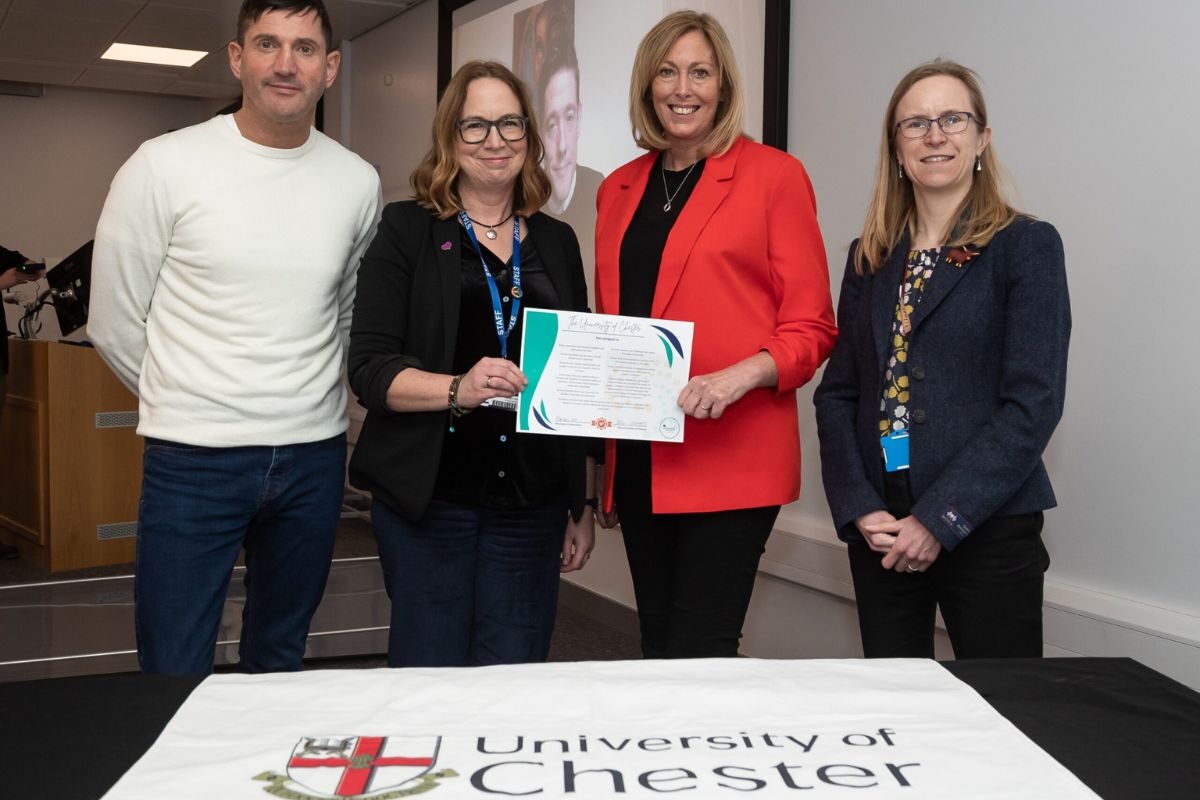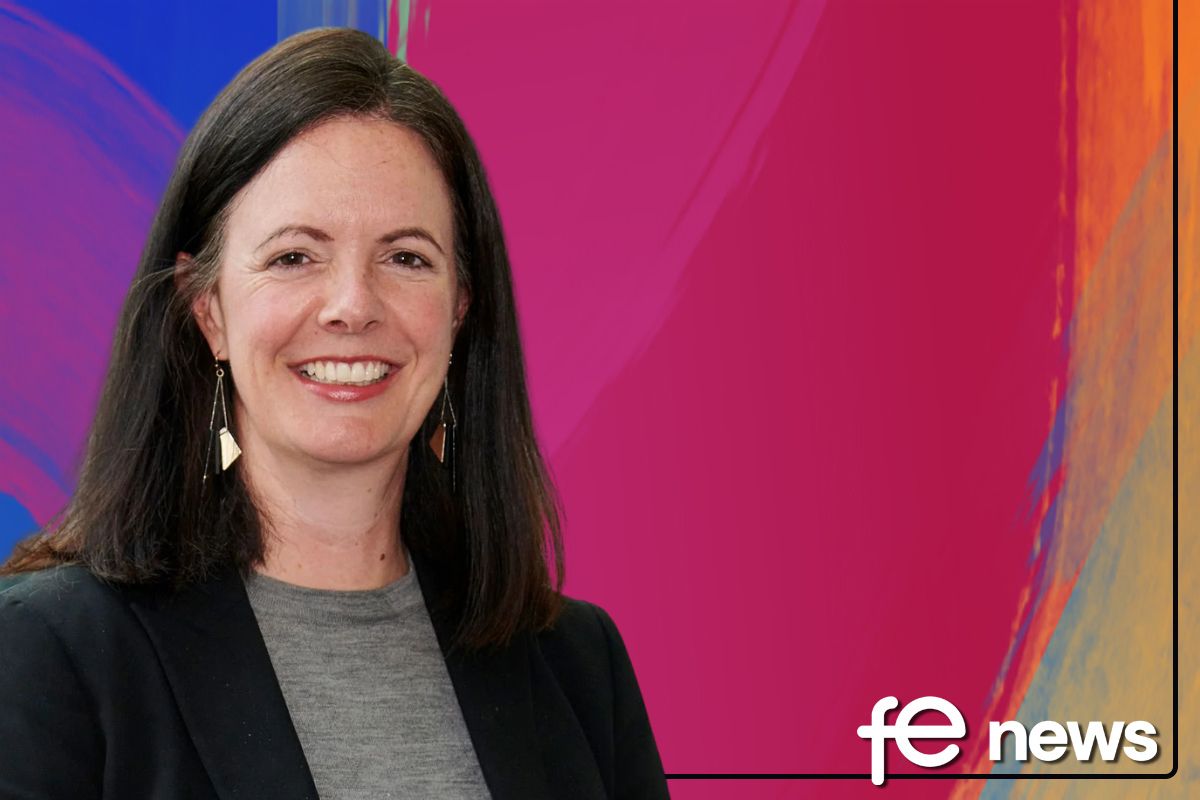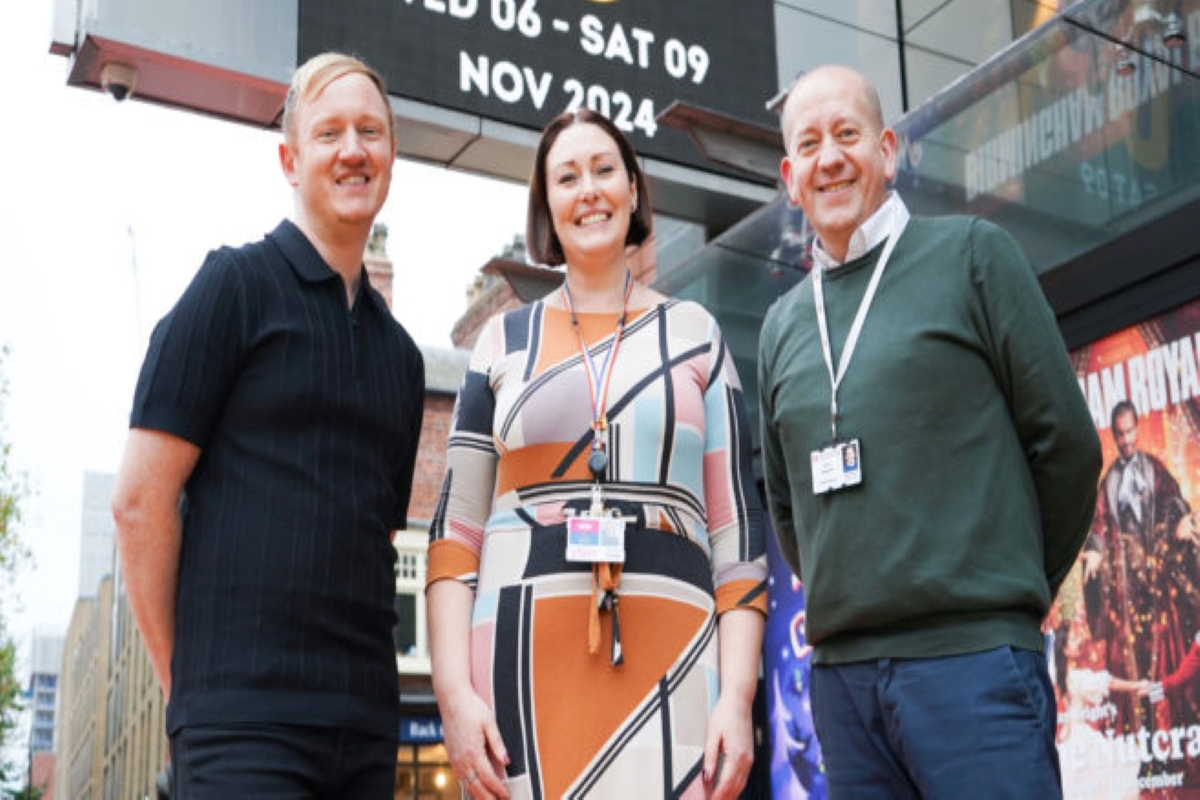Pioneering pledge by University of Chester celebrates people in recovery

The University of Chester is among the first universities in the UK to sign a pledge marking its commitment to challenging stigma surrounding recovery from addictions, to supporting students and staff in recovery and celebrating their contribution to higher education.
University leaders were joined by national partners as they signed up to the Recovery Friendly University Pledge yesterday (Monday, March 6).
The Pledge is an official commitment to welcoming and supporting people in recovery, valuing the contribution they make, reducing the barriers to university for people in recovery, and fostering a supportive environment that enables people in recovery to thrive and reach their full potential.
The declaration and University of Chester’s leadership in this field has been recognised by UK Government, and the Collegiate Recovery Movement in the United States, with representatives praising the vision of all involved.
Taking place at the Celebrating Chester as a Recovery Friendly Universityevent, held as part of the University’s Diversity Festival, the signing heralded the institution becoming only the second in the UK to make the public commitment.
The milestone comes after three years of discussion and development of initiatives at the University, led by Dr Wendy Dossett,Associate Professor of Religious Studies, Dr Helen Galbraith, Pro-Vice Chancellor (Student Experience), and supported by staff across the University including Katie Moore, from Student Services.
Together they have played a significant role at the forefront of national discussions which brought about the Pledge, with charity and partner Recovery Connections.
Dr Dossett, who researches spirituality in addiction recovery and advocates widely for visible recovery, chaired yesterday’s event and it was opened by Dr Galbraith.
Considering national progress in the UK Recovery Friendly University movement and how to further enhance the contribution to recovery culture, they were joined by: Dot Smith, CEO of Recovery Connections and North East Charity Leader of the Year; Adam Petson, Recovery Capital Development Lead, also at Recovery Connections, and, by live video link, Luke Trainor, Director of the University of Birmingham’s programme, Better than Well, which celebrates and supports their students in recovery.
Dr Dossett said:
“We know that when institutions, such as universities, challenge stigma and exclusion, they make a significant contribution to wider cultural change. I could not be more proud that my University is willing to stand against the forces of stigma by signing the Pledge, by celebrating its own community of staff and students in recovery, and by committing to further action to dismantle barriers, both to recovery, and to higher education itself.”
Professor Eunice Simmons, Vice-Chancellor of the University of Chester, said:
“Colleagues have played a leading role in national discussions to develop the Recovery Friendly University Pledge. I am proud that we are now among the first universities in the UK to commit to it, setting an example that we hope many other institutions will now follow.
“Supporting staff and students who are in, or seeking recovery from, addiction is an important part of our wider work to prioritise the health and wellbeing of our students and staff. We want our University to offer a welcoming, supportive and inclusive environment for all those who live, work and study here.”
Dr Galbraith explained further why signing the Pledge has such significance:
“Signing is an indication of intent, as well as a celebration of progress to date. We have held numerous workshops; offered Recovery Ally Training through Recovery Connections; hosted a high-profile recovery friendly photography exhibition; celebrated International Recovery Day by lighting up our Chapel in purple; set up a peer-support group for staff in recovery, and made space for staff and students to share their lived-experience expertise.
“It has been a momentous day for everyone who has worked to make it happen and for widening opportunities for people in recovery to access higher education, flourish within it, and to celebrate their strength and resilience.”
Dr Ed Day, UK Government Recovery Champion, said:
“Research tells us that making recovery pathways, identities and experiences visible within culture counteracts stigma and increases help-seeking. We need to celebrate the people in recovery in our universities as resilient people with unique track-records in overcoming adversity. We also need them for their potential to spread recovery, an experience known to be contagious.
“The University of Chester has been a pioneer in naming and celebrating the experience of recovery from addictions amongst its staff and student body, and I hope many other universities will take their lead and have the courage to commit openly to facilitating the higher education of people in recovery.”
Dr Tom Kimball, Center for Collegiate Recovery Communities, Texas Tech University, Associate Professor and Lead on International University Recovery Efforts, described how he was “beyond thrilled to learn that the University of Chester is formally signing the Pledge”.
He continued: “In doing so, the University joins a very small group of universities in the UK with the courage and vision to provide cutting-edge services to students in addiction recovery and those seeking support.
“The tireless advocacy work of Dr Wendy Dossett, Dr Helen Galbraith, and Katie Moore has made this important step possible. The signing of this Recovery Pledge breaks down stigma, myths about, and discrimination against students in recovery. Most importantly, the University of Chester, in signing this Pledge, sends a message to the world that students in addiction recovery are welcome and supported.”
John de Pury, from Universities UK said:
“We congratulate the University of Chester on being one of the very first to pledge your commitment to being a Recovery Friendly University. From our work, through the Drugs Taskforce, to develop a sector approach based on harm reduction, we understand that substance use and addictive behaviours are too often an unspoken issue in our universities despite the significant harms they may bring. We know how important it is to recognise and tackle the stigma around recovery and to provide the support that allows everyone, students and staff, to thrive and succeed.”
Dot Smith, CEO of Recovery Connections added:
“The University of Chester has shown real leadership in this field. I couldn’t be happier for its beautiful staff and student recovery community that the University is openly committing to the Pledge.”
University staff and students have welcomed the signing of the Pledge, with staff sharing how “the University of Chester will really be a ‘safe space’ for those in recovery” and describing it as “a huge step in the right direction for Chester and our wider community”. Students’ responses include “knowing that the University’s approach is welcoming and supportive makes all the difference” and “this signing means increased acceptance, awareness and reduced stigma of people struggling with addiction and aiming for recovery”.
To find out more about the Pledge, visit: https://www.recoveryconnections.org.uk/recovery-friendly-pledge/.











Responses